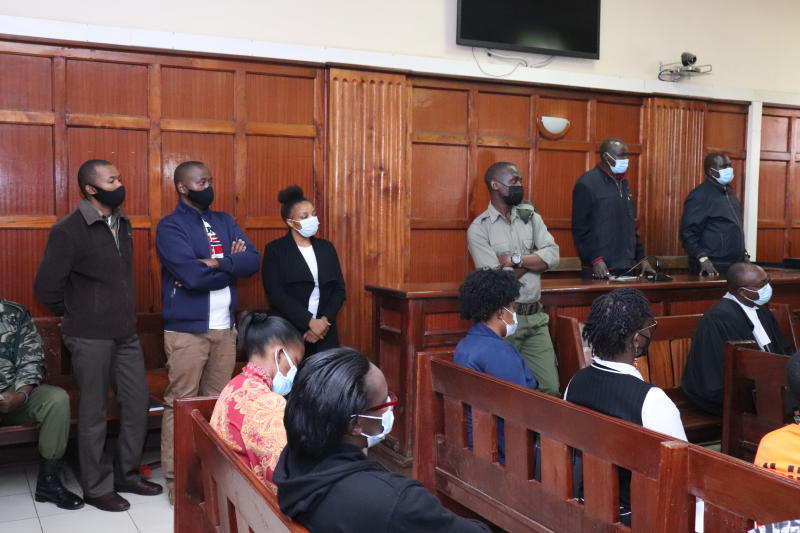×
The Standard e-Paper
Smart Minds Choose Us

Four police officers at a Milimani court on Monday, September 20, 2021, where the court ruled that they have a case to answer in connection with the murder of Lawyer Willy Kimani. [Collins Kweyu, Standard]
The fate of four police officers and a civilian accused of killing a lawyer, his client and a taxi driver is now in the hands of the judge after parties concluded their final pleas to the court.